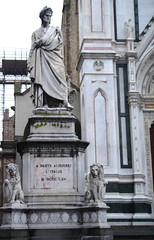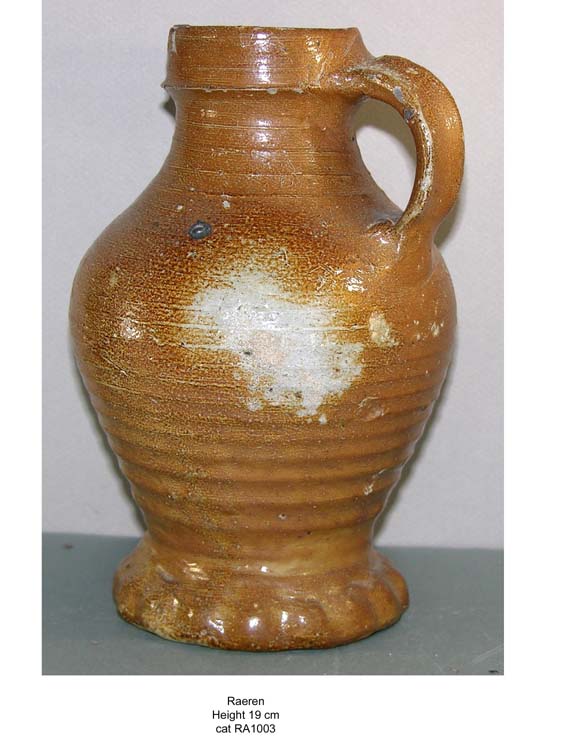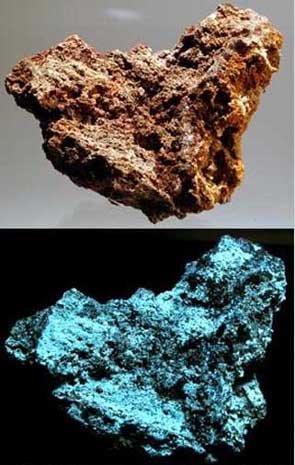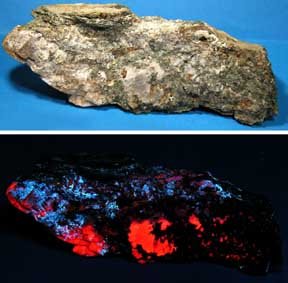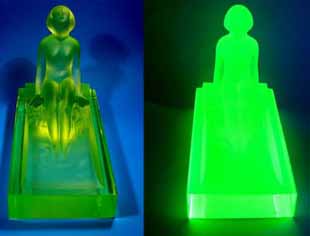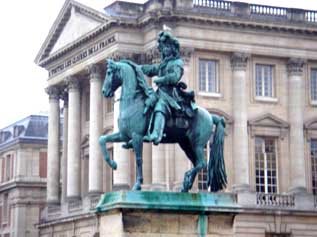Ancient Greece
Ancient Greece was where democracy was founded. This took place about 2,500 to 2,000 years ago. There were a lot of wonderful things going on at that time and place.
Some of the finest pottery ever made was crafted by the ancient Greeks. The same applies to sculpture made by them from marble and bronze. This includes the world famous Venus de Milo now located in the Louvre in Paris, and a great many others around the world including the Vatican Museum located in Rome and the British Museum in London. I have spent some time in the Vatican Museums, have visited the British Museum several times, and gone to the Louvre in Paris more times than I can remember or count.
The Venus de Milo is slightly larger than life size at 203 cm (6 ft 8 in) high. From an inscription which was on the plinth of this lovely sculpture, she is thought to be the work of Alexandros of Antioch having been made during the period of about 130 BC to 100 BC.
After seeing an incredibly fine-looking life sized marble statue of Aphrodite or Venus in the city of Nicosia on the island of Cyprus in the Mediterranean Sea in the early 1970s, I had dreams about her for many years. She was the most beautiful woman I had ever seen. Over the course of the last 60 years I have been friends with many attractive women, and I am still not sure that she was not the most beautiful of any of them.
The Parthenon on the Acropolis hill in Athens is one of the world's most perfect buildings and one of the greatest cultural monuments. It was built during the period of 447 BC - 432 BC. I was fortunate to have visited it before the current restoration began which has now been going on for more than thirty years.
The Ancient Greeks had tremendous achievements in the fields of philosophy, democracy, medicine, sculpture, and architecture, but they weren’t sedentary intellectuals. They also enjoyed and believed in intense physical exercise and sports. The ancient Olympic Games were held in Olympia, Greece from the 8th century BC until the 5th century AD, i.e., for more than 1,000 years.
Socrates is often thought of as one of the fathers of western philosophy. He lived from 469 BC - 399 BC. He was not some mythical character, he was an actual man. There are many accounts of him in the writings of Plato and also in the works of Xenophon, Aristotle, and Aristophanes. These provide good historical documentation and many insights about the guy. One of my favorite historical descriptions of him comes from his wife. She goes on at length talking about what a lousy husband and father he is, how lazy he is, and that he often drinks way too much.
man. There are many accounts of him in the writings of Plato and also in the works of Xenophon, Aristotle, and Aristophanes. These provide good historical documentation and many insights about the guy. One of my favorite historical descriptions of him comes from his wife. She goes on at length talking about what a lousy husband and father he is, how lazy he is, and that he often drinks way too much.
One of the more important men in ancient Greece is the well documented in Greek physician Hippocrates of Kos. He is often described as the "father of modern medicine.” He lived during the period 460 BC - 370 BC.
After the Greek empire declined and the Roman Empire came to its ascendancy 200 - 300 years later there are a great many people who are well documented historically, both in writings by themselves and others and in the grand things they built.
An example of these well documented historical figures is Hadrian. He originally came from the area that today we call Spain. He was born on January 24, 76 and died roughly 62 years later on July 10, 138. Today intellectuals describe him as a Stoic and an Epicurean philosopher. He was also Emperor of the Roman Empire for 21 years from 117 AD to 138 AD. Hadrian built a massive wall spanning the entire width of England separating it from the modern day Scotland. Hadrian's Wall was 80 Roman miles long (73.5 statute miles or 117 kilometers). I have visited it several times and have walked along big parts of it. Hadrian also built a large and incredible villa at Tivoli, Italy. Hadrian's villa consisted of a complex of at least 30 buildings, which covered an area of at least 1 square kilometer (250 acres) which I spent a full day visiting a few years ago. In my coin collection I have several 2,000 year old Roman coins which were minted during Hadrian's reign. He was a good looking guy who sported a beard.
describe him as a Stoic and an Epicurean philosopher. He was also Emperor of the Roman Empire for 21 years from 117 AD to 138 AD. Hadrian built a massive wall spanning the entire width of England separating it from the modern day Scotland. Hadrian's Wall was 80 Roman miles long (73.5 statute miles or 117 kilometers). I have visited it several times and have walked along big parts of it. Hadrian also built a large and incredible villa at Tivoli, Italy. Hadrian's villa consisted of a complex of at least 30 buildings, which covered an area of at least 1 square kilometer (250 acres) which I spent a full day visiting a few years ago. In my coin collection I have several 2,000 year old Roman coins which were minted during Hadrian's reign. He was a good looking guy who sported a beard.
One of the reasons I have described these famous historical figures is to point out that there is massive and incontrovertible proof that these people actually lived. They were not myths or Gods. They put on their pants one leg at a time, and sometimes were in bad moods, pensive, horny, had hangovers, ate too much, or had upset stomachs.
I have travelled widely in the area that today we call Israel. From Jerusalem to Nazareth, Bethlehem, Lake Tiberius (the sea of Galilee), the Jordan River, and the Dead Sea. I was raised as a Christian, baptized, and confirmed in the American Anglican Church. As a young man I even helped the padre out during the Sunday services, wearing that long black dress. No, the guy never sexually abused me, made any sexual comments, or even looked at me in a suggestive way. But I couldn’t help noticing that before the main Sunday services he would strongly shore up himself by repeatedly taking enormous swigs off the holy wine jug. I have attended Sunday church services in the beautiful cathedral that Charlemagne built in Aachen, Germany more than 1,200 years ago and also at the historical Westminster Abbey in London.
Church. As a young man I even helped the padre out during the Sunday services, wearing that long black dress. No, the guy never sexually abused me, made any sexual comments, or even looked at me in a suggestive way. But I couldn’t help noticing that before the main Sunday services he would strongly shore up himself by repeatedly taking enormous swigs off the holy wine jug. I have attended Sunday church services in the beautiful cathedral that Charlemagne built in Aachen, Germany more than 1,200 years ago and also at the historical Westminster Abbey in London.
All of this is intended as a preface to my saying that there is no reputable historical evidence that the carpenter from Nazareth actuall y existed. None. The gospels were written many years after his death. One can say that there is some logic to this; he was not some rich emperor, just a poor carpenter who had been born out of wedlock. I don’t know. Much of what Jesus is supposed to have said makes a great deal of sense to me, but there are big questions about whether the guy really lived or is just a myth/story that has grown up over the years.
y existed. None. The gospels were written many years after his death. One can say that there is some logic to this; he was not some rich emperor, just a poor carpenter who had been born out of wedlock. I don’t know. Much of what Jesus is supposed to have said makes a great deal of sense to me, but there are big questions about whether the guy really lived or is just a myth/story that has grown up over the years.
Plato is one of the most well documented historical figures from Ancient Greece. Like the other great men described above, Plato was no saint. But he certainly was one of the finest intellects ever to have lived. He was born in about 428 BC and died in 348 BC). Plato was a writer, a Classical Greek philosopher, and a mathematician. He was also the founder of the Academy in Athens, which was the first institution of higher learning in the Western world.
I first began studying Plato forty years ago, and for some time now I have been spending a few hours every morning (while my brain is at its sharpest) reading and studying Plato.
for some time now I have been spending a few hours every morning (while my brain is at its sharpest) reading and studying Plato.
Since the ancient Greeks are normally regarded as the fathers of democracy, now seems like a very good time to be studying them. When in the democratic country of America the voters overwhelming vote for one candidate, but another candidate usurps the election and remains president; when America openly and officially supports torture and indefinite detention of people who have not had the opportunity to present their side of the story in a court of law; when the execution by death squads or drone missile attacks of people who the rich and powerful in American don’t agree with is a daily occurrence; when the Wall Street Barons openly steal the pensions from millions of working citizens and then get bailed out by the American Government; and when 100 million people either do not have health insurance or are so grossly underinsured that one major illness or accident could bankrupt them, one could rightly question whether the political system that America has in the 21st century is a Democracy or whether it is just some corrupt, bastardized imitation or representation of Democracy which comes complete with sham elections.
At a later date I will describe what I think about Plato, his ideas, and how I think they relate to what is happening in the 21st century.
-
-
-
-
-
-
-
-
--
-
-
-
Some of the finest pottery ever made was crafted by the ancient Greeks. The same applies to sculpture made by them from marble and bronze. This includes the world famous Venus de Milo now located in the Louvre in Paris, and a great many others around the world including the Vatican Museum located in Rome and the British Museum in London. I have spent some time in the Vatican Museums, have visited the British Museum several times, and gone to the Louvre in Paris more times than I can remember or count.
The Venus de Milo is slightly larger than life size at 203 cm (6 ft 8 in) high. From an inscription which was on the plinth of this lovely sculpture, she is thought to be the work of Alexandros of Antioch having been made during the period of about 130 BC to 100 BC.

After seeing an incredibly fine-looking life sized marble statue of Aphrodite or Venus in the city of Nicosia on the island of Cyprus in the Mediterranean Sea in the early 1970s, I had dreams about her for many years. She was the most beautiful woman I had ever seen. Over the course of the last 60 years I have been friends with many attractive women, and I am still not sure that she was not the most beautiful of any of them.
The Parthenon on the Acropolis hill in Athens is one of the world's most perfect buildings and one of the greatest cultural monuments. It was built during the period of 447 BC - 432 BC. I was fortunate to have visited it before the current restoration began which has now been going on for more than thirty years.
The Ancient Greeks had tremendous achievements in the fields of philosophy, democracy, medicine, sculpture, and architecture, but they weren’t sedentary intellectuals. They also enjoyed and believed in intense physical exercise and sports. The ancient Olympic Games were held in Olympia, Greece from the 8th century BC until the 5th century AD, i.e., for more than 1,000 years.
Socrates is often thought of as one of the fathers of western philosophy. He lived from 469 BC - 399 BC. He was not some mythical character, he was an actual
 man. There are many accounts of him in the writings of Plato and also in the works of Xenophon, Aristotle, and Aristophanes. These provide good historical documentation and many insights about the guy. One of my favorite historical descriptions of him comes from his wife. She goes on at length talking about what a lousy husband and father he is, how lazy he is, and that he often drinks way too much.
man. There are many accounts of him in the writings of Plato and also in the works of Xenophon, Aristotle, and Aristophanes. These provide good historical documentation and many insights about the guy. One of my favorite historical descriptions of him comes from his wife. She goes on at length talking about what a lousy husband and father he is, how lazy he is, and that he often drinks way too much.One of the more important men in ancient Greece is the well documented in Greek physician Hippocrates of Kos. He is often described as the "father of modern medicine.” He lived during the period 460 BC - 370 BC.
After the Greek empire declined and the Roman Empire came to its ascendancy 200 - 300 years later there are a great many people who are well documented historically, both in writings by themselves and others and in the grand things they built.
An example of these well documented historical figures is Hadrian. He originally came from the area that today we call Spain. He was born on January 24, 76 and died roughly 62 years later on July 10, 138. Today intellectuals
 describe him as a Stoic and an Epicurean philosopher. He was also Emperor of the Roman Empire for 21 years from 117 AD to 138 AD. Hadrian built a massive wall spanning the entire width of England separating it from the modern day Scotland. Hadrian's Wall was 80 Roman miles long (73.5 statute miles or 117 kilometers). I have visited it several times and have walked along big parts of it. Hadrian also built a large and incredible villa at Tivoli, Italy. Hadrian's villa consisted of a complex of at least 30 buildings, which covered an area of at least 1 square kilometer (250 acres) which I spent a full day visiting a few years ago. In my coin collection I have several 2,000 year old Roman coins which were minted during Hadrian's reign. He was a good looking guy who sported a beard.
describe him as a Stoic and an Epicurean philosopher. He was also Emperor of the Roman Empire for 21 years from 117 AD to 138 AD. Hadrian built a massive wall spanning the entire width of England separating it from the modern day Scotland. Hadrian's Wall was 80 Roman miles long (73.5 statute miles or 117 kilometers). I have visited it several times and have walked along big parts of it. Hadrian also built a large and incredible villa at Tivoli, Italy. Hadrian's villa consisted of a complex of at least 30 buildings, which covered an area of at least 1 square kilometer (250 acres) which I spent a full day visiting a few years ago. In my coin collection I have several 2,000 year old Roman coins which were minted during Hadrian's reign. He was a good looking guy who sported a beard.One of the reasons I have described these famous historical figures is to point out that there is massive and incontrovertible proof that these people actually lived. They were not myths or Gods. They put on their pants one leg at a time, and sometimes were in bad moods, pensive, horny, had hangovers, ate too much, or had upset stomachs.
I have travelled widely in the area that today we call Israel. From Jerusalem to Nazareth, Bethlehem, Lake Tiberius (the sea of Galilee), the Jordan River, and the Dead Sea. I was raised as a Christian, baptized, and confirmed in the American Anglican
 Church. As a young man I even helped the padre out during the Sunday services, wearing that long black dress. No, the guy never sexually abused me, made any sexual comments, or even looked at me in a suggestive way. But I couldn’t help noticing that before the main Sunday services he would strongly shore up himself by repeatedly taking enormous swigs off the holy wine jug. I have attended Sunday church services in the beautiful cathedral that Charlemagne built in Aachen, Germany more than 1,200 years ago and also at the historical Westminster Abbey in London.
Church. As a young man I even helped the padre out during the Sunday services, wearing that long black dress. No, the guy never sexually abused me, made any sexual comments, or even looked at me in a suggestive way. But I couldn’t help noticing that before the main Sunday services he would strongly shore up himself by repeatedly taking enormous swigs off the holy wine jug. I have attended Sunday church services in the beautiful cathedral that Charlemagne built in Aachen, Germany more than 1,200 years ago and also at the historical Westminster Abbey in London.All of this is intended as a preface to my saying that there is no reputable historical evidence that the carpenter from Nazareth actuall
 y existed. None. The gospels were written many years after his death. One can say that there is some logic to this; he was not some rich emperor, just a poor carpenter who had been born out of wedlock. I don’t know. Much of what Jesus is supposed to have said makes a great deal of sense to me, but there are big questions about whether the guy really lived or is just a myth/story that has grown up over the years.
y existed. None. The gospels were written many years after his death. One can say that there is some logic to this; he was not some rich emperor, just a poor carpenter who had been born out of wedlock. I don’t know. Much of what Jesus is supposed to have said makes a great deal of sense to me, but there are big questions about whether the guy really lived or is just a myth/story that has grown up over the years.Plato is one of the most well documented historical figures from Ancient Greece. Like the other great men described above, Plato was no saint. But he certainly was one of the finest intellects ever to have lived. He was born in about 428 BC and died in 348 BC). Plato was a writer, a Classical Greek philosopher, and a mathematician. He was also the founder of the Academy in Athens, which was the first institution of higher learning in the Western world.
I first began studying Plato forty years ago, and
 for some time now I have been spending a few hours every morning (while my brain is at its sharpest) reading and studying Plato.
for some time now I have been spending a few hours every morning (while my brain is at its sharpest) reading and studying Plato.Since the ancient Greeks are normally regarded as the fathers of democracy, now seems like a very good time to be studying them. When in the democratic country of America the voters overwhelming vote for one candidate, but another candidate usurps the election and remains president; when America openly and officially supports torture and indefinite detention of people who have not had the opportunity to present their side of the story in a court of law; when the execution by death squads or drone missile attacks of people who the rich and powerful in American don’t agree with is a daily occurrence; when the Wall Street Barons openly steal the pensions from millions of working citizens and then get bailed out by the American Government; and when 100 million people either do not have health insurance or are so grossly underinsured that one major illness or accident could bankrupt them, one could rightly question whether the political system that America has in the 21st century is a Democracy or whether it is just some corrupt, bastardized imitation or representation of Democracy which comes complete with sham elections.
At a later date I will describe what I think about Plato, his ideas, and how I think they relate to what is happening in the 21st century.
-
-
-
-
-
-
-
-
--
-
-
-
